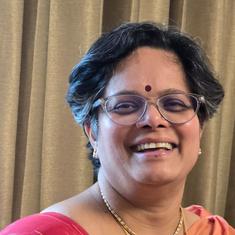Mandrem, a coastal constituency in North Goa famous for beach-shacks selling blinis and borscht to thousands of Russian tourists, has just given Goa its second chief minister: Laxmikant Parsekar.
The 58-year-old former school principal referred to locally as "Sir" followed the footsteps of Goa’s first chief minister Dayanand Bandodkar to grab the coveted chair on Saturday. During Bandodkar’s tenure (1963-'66 and 1967-'73), Mandrem was largely an impoverished, agrarian constituency. But Parsekar’s Mandrem now sees a deluge of Russian tourists eager to bask in the warm winter sun on beaches like Mandrem, Morjim, Arambol and Ashwem.
On November 8, however, the mild winter sun shone bright on the diminutive Parsekar, who narrowly beat his rivals within the Bharatiya Janata Party to be sworn in as the state’s 11th chief minister. The post became vacant after the incumbent, Manohar Parrikar, resigned in order to take up a cabinet position in Delhi.
Parsekar, along with Parrikar, speaker of the Goa legislative assembly Rajendra Arlekar, and union minister of state for tourism and culture Shripad Naik are among the BJP's first batch of young Goan leaders who took the party from scratch to the absolute majority it commands today.
RSS background
Born in Arambol, a beach village in Mandrem, when Goa was still under Portuguese rule, Parsekar completed his M.Sc in 1980. He also did a B.Ed. from the Centre of Post Graduate Instruction and Research in Panaji, which was then affiliated to the Bombay University, and eventually went on to become the principal of Harmal Panchakroshi Secondary School, located in the village of his birth.
An avowed Rashtriya Swayamsevak Sangh volunteer, his political innings kicked off with the 1989 state assembly elections on a shaky note. Those were the years when the Maharashtrawadi Gomantak Party founded by Bandodkar was still a force to reckon with in North Goa, especially Mandrem, which returned chief minister Bandodkar as MLA on three occasions.
It was also the year before Parrikar, as a young IIT-educated businessman, entered politics and when late Pramod Mahajan, who went on to become union minister for telecommunications, would not find takers in Goa for a BJP ticket for state elections despite implorations to local politicians.
Predictably, Parsekar lost miserably to his MGP rival Ramakant Khalap.
“I had almost packed my bag and left the house as my family refused to digest the fact that I am contesting against MGP candidate Ramakant Khalap,” Parsekar has been quoted as saying.
The start
But 1988 was only the beginning.
After another loss in 1999, Parsekar eventually beat Khakap in 2002 by a small margin of 750 votes. He was returned by Mandrem voters twice in 2007 and in 2012, when halfway through the term he became chief minister. He has also been the BJP state president on two occasions. It was while he was at the helm that the party, goaded by Parrikar, started an outreach programme to Goa’s Catholics, who account for 26% of the state’s population.
However, as far as his performance as an administrator goes, Parsekar’s handling of the state health ministry has been found wanting.
“His performance as health minister for the last two and a half years can be judged by the stink of urine at the Goa Medical College", the state's only medical college and its largest hospital, said Congress spokesperson Sunil Kawthankar soon after Parsekar’s appointment. "If one cannot manage a hospital catering to the masses, how can you run the state?”
The problem that Parsekar and several other senior state-level BJP leaders suffer from is the meteoric rise and astuteness of his peer, Manohar Parrikar. They are the political embodiment of the phrase "Nothing grows under a banyan tree."
Long shadow
A tell-tale sign of just how Parsekar could run the state in the perceivable future came moments after he was sworn in as chief minister and was asked by the media how he would go about allotting portfolios to the nine cabinet ministers who were sworn in along with him.
“Manohar Parrikar is going to return from Delhi on the 13th or 14th [of November]," he said, unwittingly indicating that the long shadow of his predecessor could stretch from New Delhi to Panaji. "We will decide the portfolios after that.”
Party insiders suggest that it is was a combination of Parsekar’s seniority as well as his susceptibility to being remote-controlled that eventually weighed in the Mandrem MLA’s favour in the contest with Arlekar, another RSS-backed candidate who was in the race.










